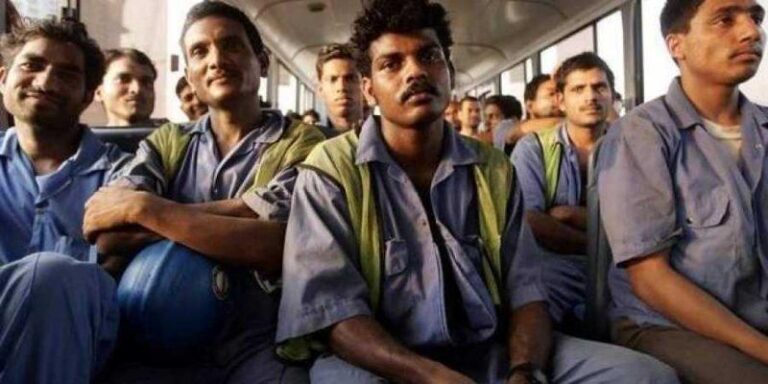Tensions between India’s workforce and Prime Minister Narendra Modi’s government have intensified in recent months, as widespread protests and strikes underscore growing discontent among labor groups. From concerns over labor reforms to demands for better wages and job security, Indian workers are voicing their frustrations with policies they perceive as favoring corporations at the expense of the common laborer. This article explores the root causes of worker unrest, the implications for India’s economic landscape, and the broader political ramifications for Modi’s administration.
Rising Unrest Among Indian Workers Highlights Growing Economic Discontent
Across India, labor strikes and protests have surged, signaling deep-rooted frustrations within the working class. Key grievances fueling this unrest include:
- Stagnant wages amid rising inflation, eroding purchasing power
- Job insecurity intensified by rapid automation and contract-based employment
- Perceived government neglect of labor rights and social protections
- Delayed implementation of promised welfare schemes targeting workers
These issues intersect with broader economic challenges such as slower job creation and widening income inequality. Many workers accuse Narendra Modi’s government of prioritizing business interests over labor welfare, particularly after recent policy shifts that eased labor laws under the banner of attracting investment. The tension is further exemplified by regional differences in how these policies have been rolled out, leaving certain states and sectors disproportionately affected.
| Sector | Reported Wage Increase (%) | Number of Strikes (2023) |
|---|---|---|
| Manufacturing | 2% | 27 |
| Construction | 1.5% | 34 |
| Textiles | 0.8% | 19 |
| IT Services | 3.5% | 5 |
Labor Rights and Policy Reforms Under Narendra Modi Face Sharp Criticism
The Modi government’s ambitious restructuring of labor laws, aimed at boosting economic growth and attracting foreign investment, has met with intense backlash from the workforce and labor unions alike. Critics argue that the reforms disproportionately favor corporate interests while undermining the job security and welfare of millions of Indian workers. Key grievances center on the dilution of provisions related to minimum wages, the ease of laying off employees, and the weakening of trade union rights. These changes have sparked widespread protests, with workers fearing they will be left vulnerable to exploitation amid an already challenging employment landscape.
Major points of contention include:
- Extension of probation periods, allowing longer temporary employment without full benefits
- Relaxation of factory rules that limit layoffs and retrenchments
- Ambiguity in contract labor regulations, enabling companies to hire workers on precarious terms
- Reduction in the government’s role in dispute resolution, shifting power toward employers
| Labor Law Aspect | Before Reforms | After Reforms |
|---|---|---|
| Layoff Approval | Mandatory government sanction | Approval required only for establishments with 300+ employees |
| Probation Period | Typically 3 months | Extended up to 6 months+ |
| Trade Union Recognition | Clear thresholds for recognition | Greater restrictions on union activities |
Calls for Inclusive Dialogue and Strengthened Worker Protections Intensify
Widespread frustration among Indian workers has sparked renewed demands for a more inclusive and transparent approach to labor reforms. Various trade unions and civil society groups have called on the government to engage in meaningful dialogue rather than imposing legislation without considering the voices of those most affected. The consensus among worker representatives is that policies must prioritize job security, fair wages, and safer working conditions to restore trust between the workforce and policymakers.
Advocates emphasize the urgent need to strengthen worker protections, pointing to recent changes perceived as undermining labor rights. Key demands include:
- Ensuring the right to collective bargaining
- Improving workplace safety standards
- Guaranteeing minimum wage enforcement
- Introducing better mechanisms for dispute resolution
| Issue | Worker Concern | Government Response |
|---|---|---|
| Contract Labor | Job insecurity and exploitation | Limited regulatory oversight |
| Wage Policies | Delayed and insufficient payments | Wage boards under reform |
| Workplace Safety | Rising workplace accidents | New safety guidelines proposed |
In Conclusion
As protests continue and debates escalate, the discontent among Indian workers towards Narendra Modi’s administration reveals deep-rooted frustrations over economic policies, labor reforms, and employment challenges. While the government maintains its stance on modernization and growth, the responses from workers and unions highlight the complexities of balancing development with social equity. How these tensions evolve will be pivotal in shaping India’s political and economic landscape in the coming years.




